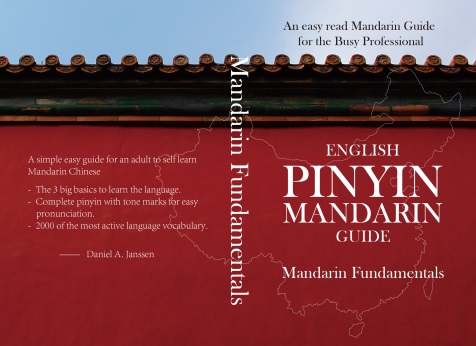MyHuangDao.com
A resource for foreigners that are living, working and or traveling from Qingdao or Huangdao, Shandong, China.

Thanks for visiting!
We are building the most comprehensive English based website to support foreigners living and working from this area. If you would like to be involved and/or cooperate in the development share your good ideas or offer products and services, please [contact us].
Serving:
Preparing your Toddler for Pre-School in China
There is nothing special about preparing your child for pre-school in China except for having to get a health check, a finger prick blood test to screen for common transmittable diseases by an appointed medical institution. In China children eat lunch and nap at the kindergarten so we had to buy the bedding (blanket & mattress), hand washing towel, indoor/outdoor drinking glass, bowl/plate, indoor/outdoor shoes, and rain coat/boots that is stored and used at the school.
Otherwise it understanding that this is going to be a big transition and something you should prepare yourself, your family and of course the child so the transition into education, new social interactions and independence has a positive start for your child’s new life.
Understanding how your child develops is a good first step to preparing your child for school. This may help you to choose an appropriate school and certainly help on developmental strategies you can do at home, in the park and after school hours.
Some Science:
Early Child Development and Brain Science tells us the average baby has 100 million neurons at birth that will be with that child for life. It is understood that a babies brain make 1000 neuronal connects per/sec resulting in 85% of brain growth occurring in the first 5 years.
The connections for vision and hearing form in the first year and language in the following years with the basic thinking, communicating and reasoning in place by age 5. Then the developing brain goes through a process of “pruning” connections while others being strengthened.
[Synaptic pruning, which includes both axon and dendrite pruning, is the process of synapse elimination that occurs between early childhood and the onset of puberty in many mammals, including humans. From <https://en.wikipedia.org/wiki/Synaptic_pruning> ]
Patricia Kuhl from the Institute for Learning and Brain Science at the University of Washington claims the ability to learn a second language is highest up to age 7 then decreases with age.
[Child Development Early Learning, the Brain and Society] The Language Learning Curve: Age on the X-Axis, Language Score on the Y-Axis
Kuhl claims the ability to learn a second language is highest up to age 7 then decreases with age. In her labs around the world they study children across all languages and says up to 6 month old children are “citizens of the world”. By this she means they can discriminate the sounds from any language regardless of where they come from where it is extremely difficult for an adult to discriminates sounds in foreign languages.
Alison Gopnik collaborates this claim of the sharp rise in synaptic connections and goes on to demonstrate through creative probabilistic experiments that children even as young as 9 months, to 4 years display the ability to hypothesize and calculate, more surprising is their ability to revise their hypotheses and change as the evidence presents itself. As she calls the little scientist within. [Alison Gopnik The Minds of Children]
Gopnik goes on to point out that different parts of the brain develop slightly different as the red line shows the Visual cortex in nearly fully developed by 1 year old while the line in green, the Prefrontal cortex, the so called Executive Function of the brain, decision making and higher cognitive functions develops more slowly right into those pre-school and early education years.
Dr. Cristine Legare Associate Professor at the University of Texas, Austin explains how children actively seek to understand the world around them, how and why they seek explanations for what happens around them and the development of scientific reasoning.
[IV. How do we become humble Part 1 Introduction (Dr Cristine Legare)]
[IV. How do we become humble Part 2 Learning _ Explanation (Dr Cristine Legare)]
[IV. How do we become humble Part 3 Inconsistency, Explanation _ Belief Revision (C. Legare)]
[IV. How do we become humble Part 4 Implications for child education (Dr Cristine Legare)]
Christine describes they have demonstrated from a decade of research that children are more interested if information provided is inconsistent and incomplete verses consistent and complete, that they will be more likely to ask questions and explore when things don’t match expectations as she and Gopnik promotes that children are little scientists and seek to discover.
Now that you are a more prepared parent with a better understanding of how your child develops in the early years lets prepare your child for pre-school.
Pre-School Preparation:
Advice from the Pro’s:
PACEY_preparingforschool_guide.pdf [click here for article if below link is not working]
[ https://www.pacey.org.uk/Pacey/media/Website-files/school%20ready/PACEY_preparingforschool_guide.pdf ]
Preschool Preparation (Zero-to-3).docx [click here for article if below link is not working]
[ https://www.zerotothree.org/resources/78-preschool-prep-how-to-prepare-your-toddler-for-preschool ]
Starting:
Begin weeks in advance to prepare you and your child for pre-school:
– Interview and visit several kindergartens.
– Choose a school.
– Get the curriculum of what the routines will be and how they plan to execute it.
– Know the route you plan to talk to get to school and back.
– Visit the school with the child and show him/her around playing, laughing and having fun in that environment.
I suggested that my wife get together with a couple kids and parents who were going to the same school and hang out for some play time, giving an opportunity for the parents to talk about any of their issues and the kids to know they have a friend at same school.
Self-Care issues to consider and routines you can do at home so he/she has some familiarity when doing it on her own:
– Going to the toilet.
– Washing hands.
– Dressing and undressing.
– Keeping her things organized. (Do they a cabinet to put things away or what?)
The [PACEY_preparingforschool_guide.pdf] article offers excellent things you can try and a checklist to work through.
Pretend Play:
Do some pretend play at home with your child pretending you’re the teacher and she is the student and visa-verse. Do some role play and be sure to have lots of fun with it not trying to get him/her to learn something but just experience the roles. Start a routine of going to sleep early and waking up early, starting your day with similar activities that the school will do.
Parent’s Don’t Worry:
In pre-school (Kindergarten) children learn more about social and communication skills than learning math and the alphabet. Focus more on your child engaging in “process” of learning not what is actually learned, concentrate on his/her learning cooperation and play with others.
Shift your focus to this being fun, enjoyable place for the child to make friends not about learning school stuff:
– Social life
– Self-awareness
– Expanding the mind (neuron connections)
– Play and friends
– New experiences
Your Child’s Worries:
Be sure to listen to your child if they have worries, be sure to listen to them and give them opportunity to express themselves and do not say things like “don’t worry about that” but it is normal and makes for a good opportunity for you to help them through emotional issues and set them up to deal with them on their own. You can tell them stories that you also had similar worries and how that worked out. A chance to build self-confidence in your child which should be a part of this pre-school experience.
Starting School Day 1:
– Be sure you’re up early enough so nothing is rushed to get to the school.
– Make sure everything is packed the night before and suggest letting your kid participate in packing her backpack adding a small familiar toy or stuffed animal in the backpack.
– Having a picture or two in her backpack and if he/she is missing you they can have a look and know that mommy and daddy are thinking of you.
Separation Anxiety:
You need to plan ahead and be prepared to deal with this if it becomes an issue. Discuss the “dropping them off” in advance so they get some understanding this will have and it helps to have a loving good bye routine. Establish a drop off threshold where they know that past this point you will not be with them anymore, in China this will probably be the main gate of the school.
At this point be sure to be confident for your child and have a big happy smile to see them off goes a long way. They may have strong feelings and you need to acknowledge them and reassure them it is okay to have those feelings and how strong he/she is and your confident in them.
Hopefully this helps get you started in the right direction building more confidence in you and your child. When you pick you kid up at the end of the day make sure your there early so the kid can rush straight to you, or better he/she is having fun and doesn’t want to leave so quick then allow them some extra time. Again if they have any concerns be a good listener, bend down to their level and truly listen and acknowledge they may have had a variety of emotions that day and they may need for you to just listen.
After School & Weekends:
I feel because of the over schooling and over controlled environments in China we as parents have to compensate and do what we can to provide more nature based settings and more freedom for our children to explore and interact without the “helicopter parents” hovering over every move they make.
As Peter Gray a well-known American Psychologist for his books (Free to Learn: Why Unleashing the Instinct to Play Will Make Our Children Happier, More Self-Reliant, and Better Students for Life) on the importance and decline of play describes how we are not providing enough freedom for our children to play without supervision and controlled environments. I have found this to be especially troubling as in most places in China there is no nature to expose our children to.
Do your best to get your kids out to the seaside’s letting them play in the water, dig for clams and run around on the beaches. In Huangdao area [Silversands Beach] and [Langyatai] have relatively clean beaches. Get your kids out to the mountain resorts and let them crawl around in the forest, picking up leaves and bugs and just get a little dirty. In this area Big Pearl Mountain, Little Pearl Mountain, [Wulian Mountain] all have places to get off the concrete path and get some exposure to nature.
In Tom Weisner’s TEDxUCLA talk [What is the most important influence on child development _ Tom Weisner _ TEDxUCLA] he talks about the “environment” being the most important influence on a child’s development. He makes good points and in China the learning environment as well as the health environment all need to be considered. I personally spent some time to seal up doors and windows the best I can and then added a HEPA filtered inlet with an exhaust fan for air exchange, then a high quality air filter to further control the indoor environment. We also pay attention to the outdoor air quality and be selective of where and when we go outside. I would like to say we are certainly not paranoid but if we can’t see the local mountain from smog we think twice about outdoor activities.
Get outside in nature as much as possible but do also create a stimulating indoor learning environment and be creative.
Thanks for listening and please leave a comment if you have one.
Resources:
Pre-School Preparation Articles:
PACEY_preparingforschool_guide.pdf [click here for article if below link is not working]
[ https://www.pacey.org.uk/Pacey/media/Website-files/school%20ready/PACEY_preparingforschool_guide.pdf ]
Preschool Preparation (The Baby Center).docx [click here for article if below link is not working]
[ https://www.babycenter.com/0_how-can-i-prepare-my-child-for-kindergarten_67245.bc ]
Preschool Preparation (Zero-to-3).docx [click here for article if below link is not working]
[ https://www.zerotothree.org/resources/78-preschool-prep-how-to-prepare-your-toddler-for-preschool ]
Science Videos on Child Development:
[Alison Gopnik The Minds of Children]
University of Washington Lecture Series
Opening comments by Bill Gates Senior:
[IV. How do we become humble Part 1 Introduction (Dr Cristine Legare)]
[IV. How do we become humble Part 2 Learning _ Explanation (Dr Cristine Legare)]
[IV. How do we become humble Part 3 Inconsistency, Explanation _ Belief Revision (C. Legare)]
[IV. How do we become humble Part 4 Implications for child education (Dr Cristine Legare)]
Additional Science Lectures on Early Childhood Development:
[Early Adversity, Nurturance and Childhood Brain Development]
[Early Adversity and the Neurobehavioral Development of Children, Part 1 – 2010]
[Symbolic Understanding in Infants and Young Children Challenges and Benefits, Part 1 – 2007]
[Symbolic Understanding in Infants and Young Children Challenges and Benefits, Part 2 – 2007]
TEDTalks:
[TED-The danger of instant gratification _ Jesse Weinberger]
[TED-Talk-Five connections that will change children’s lives _ Laura Jana]

[TED-Alison Gopnik What do babies think]
[TED-Let our children play in the mud Jen Hudson]
[TED-Talk-Gifted, creative and highly sensitive children _ Heidi Hass Gable]
[TED-Talk-Raising A Child Of Possibility Hugh Weber]
[TED-The decline of play _ Peter Gray]
The evolutionary function and importance of play.

[What is the most important influence on child development _ Tom Weisner _ TEDxUCLA]
Miscellaneous:
[Early Literacy Phonological Awareness]
[Early Literacy The Importance of Letter Recognition]
[Early Literacy The Importance of Oral Language]
[A Successful Preschool Transition Managing Separation Anxiety]


















